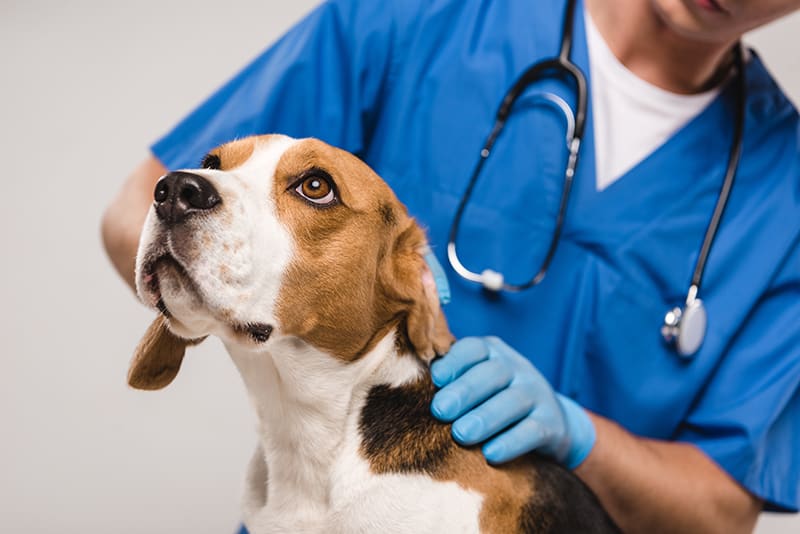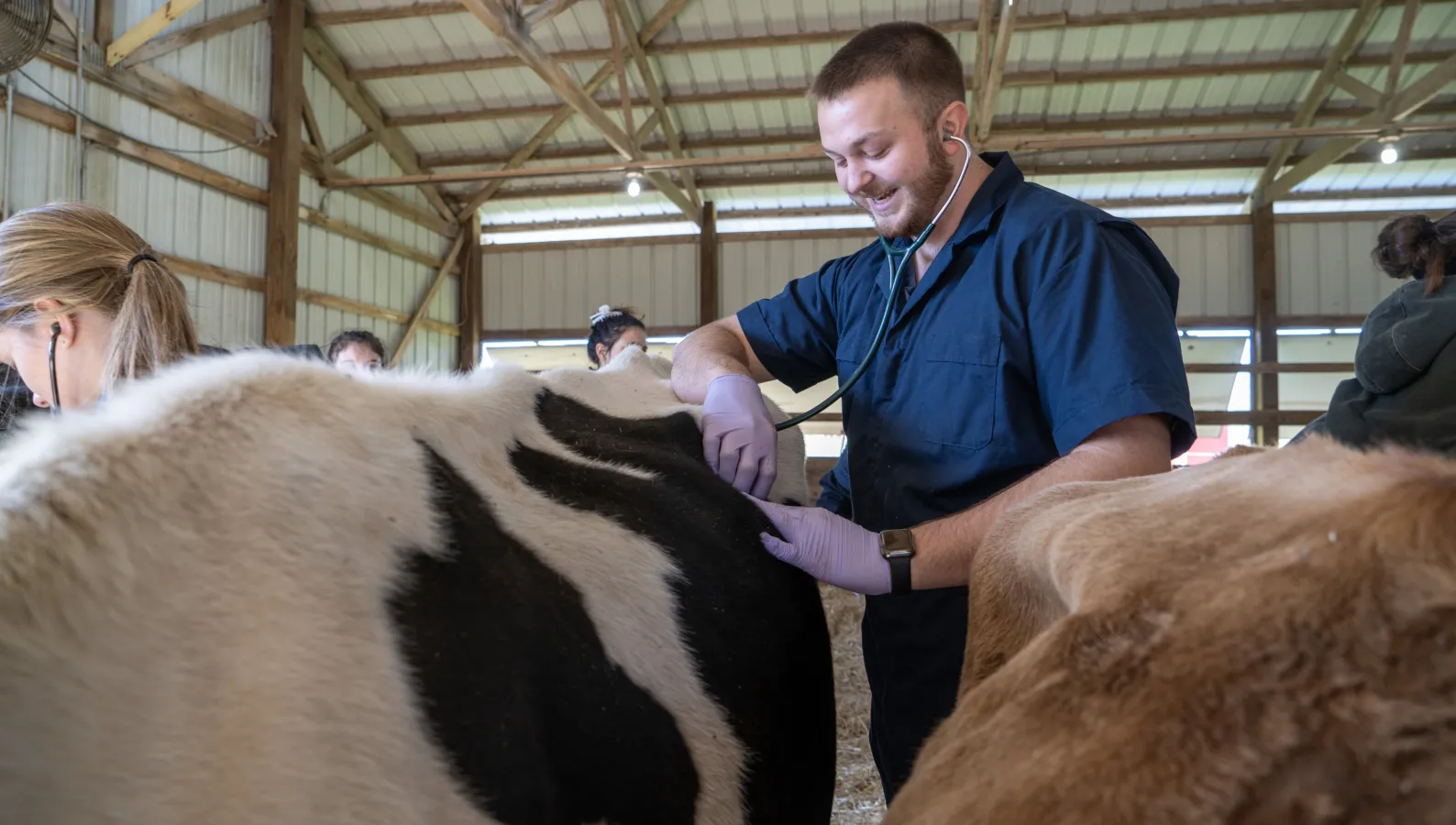What to expect ahead of consulting a Board Certified Veterinary Oncologist
Comprehensive Guide to the Services Offered by a Veterinary Oncologist
Veterinary oncology includes a vast array of services aimed at identifying and treating cancer in pets. Board Certified Veterinary Oncologist. Oncologists utilize innovative diagnostic techniques and supply various treatment choices tailored to each pet's requirements. They also prioritize supportive treatment and offer beneficial sources for pet proprietors. Comprehending these services is vital for making informed decisions. What certain aspects of veterinary oncology can notably impact a pet's treatment journey?
Comprehending Vet Oncology
Vet oncology is a specific field concentrated on treating and identifying cancer in pets. This technique encompasses a broad variety of approaches, from clinical therapies such as chemotherapy and immunotherapy to medical interventions intended at getting rid of tumors. Veterinary oncologists are educated to acknowledge the distinct manifestations of cancer cells in numerous varieties, enabling them to tailor therapy plans to specific clients.
In enhancement to standard therapies, veterinary oncology emphasizes encouraging care, which plays an important role in enhancing the high quality of life for afflicted pets. This consists of discomfort monitoring, nutritional support, and palliative treatment alternatives. Collaboration with pet dog proprietors is important, as they are indispensable to decision-making regarding their family pets' therapy paths. As research advances, veterinary oncology proceeds to progress, providing brand-new hope and enhanced outcomes for family pets diagnosed with cancer cells. In general, this area is essential for dealing with the complexities of cancer in buddy pets.
Advanced Diagnostic Techniques
Advanced analysis methods play a necessary role in vet oncology, giving crucial understandings right into the existence and extent of cancer cells in animals. Imaging techniques such as ultrasound, CT scans, and MRI are frequently used to visualize lumps and analyze their qualities. Furthermore, biopsy procedures are very important for obtaining cells examples, enabling clear-cut medical diagnosis and customized therapy strategies.
Imaging Modalities Utilized
Imaging techniques play an essential role in the medical diagnosis and monitoring of cancer cells in pets. Veterinary oncologists make use of different sophisticated imaging techniques to analyze growth presence, dimension, and transition. Radiography, or X-rays, uses a preliminary sight of bone and chest conditions, while ultrasound offers real-time imaging of soft tissues, permitting detailed assessment of interior organs. Calculated tomography (CT) enhances visualization of complicated physiological structures and enables 3D repairs, helping in precise lump localization. Magnetic vibration imaging (MRI) is vital for soft cells distinction, especially in mind tumors. Furthermore, nuclear medication techniques such as positron discharge tomography (ANIMAL) help identify metabolic task within lumps. Jointly, these methods improve analysis precision, leading reliable treatment approaches for oncological clients.
Biopsy Procedures Described
Adhering to the first assessment via imaging techniques, acquiring a clear-cut diagnosis usually requires tissue tasting through biopsy procedures. Vet oncologists use various biopsy methods based upon the lump's place and attributes. Fine needle ambition (FNA) is a minimally intrusive approach that extracts cells for cytological examination, suitable for superficial masses. Core needle biopsies give larger tissue samples and are valuable for deeper growths, permitting histopathological analysis. Surgical biopsies involve excising a section or the whole tumor, facilitating detailed analysis. These procedures not just confirm the presence of cancer cells yet likewise aid establish its kind and quality, leading treatment choices. Each biopsy strategy is picked carefully to balance diagnostic accuracy with patient safety and security and comfort.
Treatment Alternatives for Cancer Cells in Pets
When a pet dog is detected with cancer, a range of treatment alternatives appear to assist enhance and take care of the disease top quality of life. Veterinary oncologists normally recommend a multidisciplinary method tailored to the private pet's demands, which may consist of surgical procedure, radiation treatment, immunotherapy, or alternative therapies.
Surgical procedure is frequently employed to eliminate tumors and damaged cells, possibly resulting in total remission in some cases. Radiation treatment aims to damage and target cancer cells, lowering tumor size and relieving symptoms - Pet Cancer Surgery. Immunotherapy takes advantage of the pet's immune system to combat cancer cells more successfully, while alternate therapies might consist of acupuncture or natural supplements to support total health and wellness
Each treatment choice lugs its very own benefits and threats, and vet oncologists work closely with family pet proprietors to create a thorough plan that aligns with the pet's details diagnosis and the owner's desires. The utmost goal is to boost the pet's comfort and lifestyle throughout their cancer trip.
Radiation treatment for Pets
Radiation treatment is an usual therapy option for family pets diagnosed with cancer cells and is frequently made use of together with various other treatments detailed by vet oncologists. This therapy includes the administration of details medicines made to target and ruin cancer cells, thus decreasing tumor dimension and protecting against the spread of the illness. Veterinary oncologists tailor chemotherapy procedures based on the sort of cancer, the animal's general wellness, and the preferred treatment outcome.
Adverse effects can occur, as these medicines might also impact healthy cells. Typical reactions consist of nausea, throwing up, and temporary adjustments in appetite - Veterinary Oncology Services. Veterinary oncologists are geared up to handle these side effects successfully, guaranteeing the pet dog's comfort throughout the therapy process. Regular tracking through blood tests and follow-up appointments is vital to analyze the pet's reaction to chemotherapy and make essential adjustments. Inevitably, chemotherapy can offer significant benefits, improving the quality of life for animals facing cancer diagnoses

Radiation Treatment in Vet Medicine
Radiation treatment functions as an efficient therapy choice for animals identified with local tumors, providing a targeted technique to cancer cells management. This strategy utilizes high-energy radiation to damage the DNA of cancer cells, inhibiting their ability to multiply. It is particularly helpful for tumors that are not open to medical elimination or for situations where surgical procedure might not be feasible because of the tumor's area.
Vet oncologists customize radiation procedures based upon growth area, type, and dimension, as well as the animal's overall health and wellness. Treatment can be supplied using external beam radiation or brachytherapy, each with unique benefits. Commonly, several sessions are required to make best use of performance while reducing side impacts.
Family pets may experience short-lived reactions such as skin irritability, the overall goal is to diminish growths and reduce symptoms, inevitably enhancing the pet's diagnosis and top quality of life. Accordingly, radiation treatment plays an essential function in detailed cancer cells care.
Palliative Care and Top Quality of Life
Palliative treatment in vet oncology concentrates on boosting the lifestyle for pets encountering incurable diseases, making certain comfort and dignity in their last days. This specialized method focuses on pain monitoring, sign control, and emotional assistance. Vet oncologists analyze each family pet's specific demands, tailoring interventions to alleviate pain and boost general wellness.
Strategies might consist of providing medicines for discomfort alleviation, handling queasiness, and resolving various other traumatic signs and symptoms. Additionally, dietary assistance is frequently offered to maintain toughness and enhance cravings. The psychological facet of palliative care is just as crucial; producing a tranquil setting aids reduce stress and anxiety for both pet dog and owner.
Eventually, the goal of palliative care is to permit animals to enjoy their remaining time with as much delight and dignity as feasible. By concentrating on convenience and top quality of life, vet oncologists play an essential duty in making certain that family pets and their families navigate this difficult trip with empathy and understanding.
Support for Pet Dog Owners During Treatment

Psychological Support for Owners
Charting the psychological landscape during a pet's cancer therapy can be a frustrating experience for proprietors. The uncertainty bordering diagnosis and prognosis can bring about sensations of sadness, helplessness, and anxiousness. Veterinary oncologists identify the value of emotional assistance and usually offer support to aid proprietors navigate this tough trip. Communication is important; talking about treatment choices and potential results can reduce some fears. Furthermore, offering peace of mind that emotional actions stand fosters a supportive atmosphere. Several oncology centers might additionally suggest support system or therapy solutions customized for pet proprietors, facilitating shared experiences. Motivating owners to focus on self-care throughout this moment is important, as their emotional wellness directly affects their animal's comfort and overall therapy experience.

Resources and Educational Products
Steering via the intricacies of a pet's cancer cells treatment can be frightening for proprietors, making access to dependable resources and academic products crucial. Veterinary oncologists commonly supply a variety of handouts, pamphlets, and online materials that describe treatment choices, prospective adverse effects, and treatment strategies. These resources assist demystify the procedure and empower animal owners to make educated choices. In addition, numerous oncology clinics offer access to support teams and discussion forums where owners can connect with others facing similar challenges, promoting a sense of area. Educational webinars and workshops performed by vet specialists further boost understanding, guaranteeing that proprietors are well-appointed to browse their family pet's trip with cancer therapy with confidence and expertise.
Regularly Asked Concerns
How Can I Prepare My Animal for a Veterinary Oncology See?
Preparing a family pet for a veterinary oncology browse through entails event medical documents, keeping in mind symptoms, and making sure the animal is comfy. A tranquil demeanor and acquainted products can help relieve anxiousness during the consultation.
What Are the Signs My Pet Dog May Have Cancer?
Indicators that an animal might have cancer cells include inexplicable weight loss, persistent throwing up or looseness of the bowels, uncommon swellings or swellings, sleepiness, adjustments in cravings, difficulty breathing, and changes in behavior. Motivate vet focus is important.
How Can I Assistance My Animal Psychologically Throughout Treatment?
Supporting a family pet emotionally during treatment includes providing convenience, maintaining regimens, providing mild love, and ensuring a tranquil atmosphere. Participating in quiet play and regular friendship aids relieve tension and cultivates a complacency.
Exist Alternative Therapies for Pet Dogs With Cancer cells?
Different treatments for pet dogs with cancer consist of acupuncture, natural treatments, and dietary support. These strategies might complement conventional treatments, promoting overall health. Consulting with a veterinarian is important for effective and safe assimilation of alternate therapies.
What Expenses Should I Expect for Veterinary Oncology Providers?
The expected expenses for vet oncology services can vary significantly, usually influenced by diagnostics, therapies, and ongoing treatment. Pet dog proprietors should plan for expenses ranging from consultations to specialized treatments, reflecting the intricacy of cancer cells monitoring.
Partnership with animal owners is critical, as they are indispensable to decision-making concerning their family pets' therapy paths. Each therapy alternative carries its very own advantages and dangers, and veterinary oncologists work closely with family pet proprietors to develop an extensive plan that aligns with the pet's specific diagnosis and the owner's dreams. Pet dogs may experience short-lived reactions such as skin irritation, the overall goal is to shrink growths and reduce symptoms, eventually enhancing the family pet's prognosis and high quality of life. Support for pet owners during therapy is vital in steering with the emotional challenges associated with a pet's cancer cells diagnosis. Preparing a pet dog for a vet oncology browse through entails gathering medical documents, noting symptoms, and making certain the family pet is comfy.